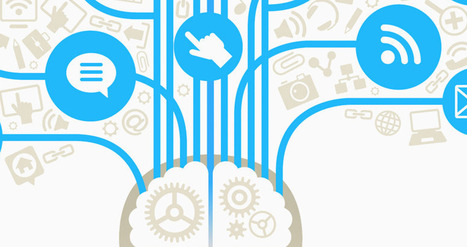Get Started for FREE
Sign up with Facebook Sign up with X
I don't have a Facebook or a X account

 Your new post is loading... Your new post is loading...
 Your new post is loading... Your new post is loading...

The Learning Factor's curator insight,
February 2, 2016 4:48 PM
When you don’t have good boundaries between your work and personal lives, your health and performance suffer. Dr. Travis Bradberry helps you set things straight.
Adele Taylor's curator insight,
February 3, 2016 3:41 PM
I am definitely guilty of checking my emails before and after work, but I have taken to disconnecting them when I am on holiday otherwise I know I will look. Anyone else guilty of the same? Also, there are some interesting points about where the balance lies between work and family, particularly points 4 and 5.

The Learning Factor's curator insight,
July 28, 2014 2:15 AM
Do your Internet habits hold you back, or help you succeed? 
Simon Cripps's curator insight,
July 29, 2014 3:43 AM
We have a perfect web-life balance. When not online we are talking about being online.

Gonzalo San Gil, PhD.'s comment,
June 21, 2013 2:46 AM
# bueno, es que 'la Imaginación' es sólo una parte. La cuestión es hacer bien La Mezcla...
|

The Learning Factor's curator insight,
November 24, 2015 5:26 PM
You love your job, but you're offered a 50 raise to work somewhere with a stressful work culture. What should you do?

The Learning Factor's curator insight,
April 23, 2014 6:58 PM
In recent months several high-level leaders have mysteriously lost their way. These talented leaders were highly successful in their respective fields and at the peak of their careers.

Carlos Garcia Pando's comment,
February 7, 2013 12:07 PM
Yes, smart people have difficulties in saying "no, I can't" or "no I won't" or any other kind and poite way of "NO". On the opposite side Thos who actually ask a lot from everyone around tend to be the "easy noers" when are asked for something.

Sheree Martin's curator insight,
February 8, 2013 8:52 PM
Balance, adequate rest and recreation and taking one thing at a time are among the fundamental principles of a happy life. |


















